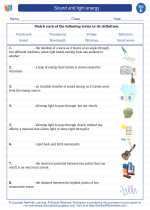Sound and light energy -> observation
What is Observation?
Observation is the process of using the five senses (sight, hearing, touch, taste, and smell) to gather information about the world. It involves carefully watching, listening, and experiencing the environment to gather data and information.
Why is Observation Important in Science?
Observation is important in science because it is the first step in the scientific method. By making careful observations, scientists can gather data that forms the basis of their experiments and investigations. It helps in understanding the natural world and forming hypotheses.
Types of Observations
There are two main types of observations: qualitative and quantitative. Qualitative observations involve descriptions that do not involve measurements, such as the color, texture, or smell of an object. Quantitative observations involve measurements and numerical data, such as the weight, length, or temperature of an object.
Improving Observation Skills
Improving observation skills can be achieved through practice and focus. It's important to pay attention to details, use tools like magnifying glasses or microscopes if needed, and take notes or make sketches to record observations accurately. Additionally, being open-minded and curious helps in making comprehensive observations.
Challenges in Observation
There are some challenges in making observations, including bias, where preconceived ideas can influence what is observed, and limitations of the human senses. Overcoming these challenges requires critical thinking, being aware of biases, and using technology to extend the reach of our senses.
Conclusion
Observation is a fundamental skill in science, allowing scientists to gather data, make inferences, and form hypotheses. By honing observation skills, we can better understand the world around us and make important discoveries.
[Observation] Related Worksheets and Study Guides:
.◂Science Worksheets and Study Guides Fifth Grade. Sound and light energy
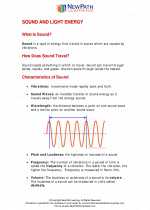
 Activity Lesson
Activity Lesson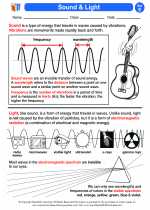
 Worksheet/Answer key
Worksheet/Answer key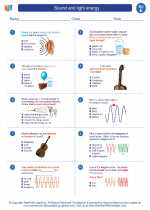
 Worksheet/Answer key
Worksheet/Answer key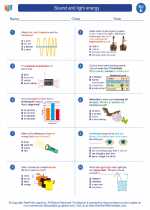
 Worksheet/Answer key
Worksheet/Answer key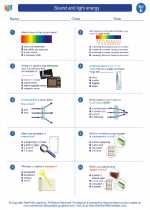
 Worksheet/Answer key
Worksheet/Answer key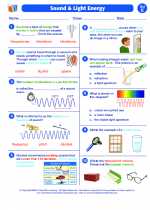
 Vocabulary/Answer key
Vocabulary/Answer key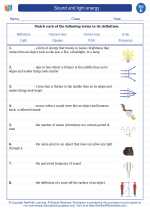
 Vocabulary/Answer key
Vocabulary/Answer key